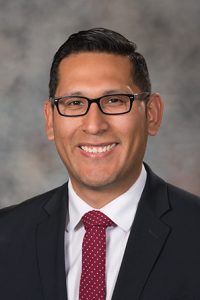Enhanced breast cancer screening coverage proposed
The Banking, Commerce and Insurance Committee heard testimony Feb. 13 on a measure that would change coverage requirements for screening mammography and breast examinations for Nebraska insurance providers.

Under LB1353, sponsored by Sen. Tony Vargas of Omaha, coverage of at least one contrast-enhanced mammogram would be included in insurance coverage. The bill also would require coverage of additional mammograms if necessary for women 40 or older.
For women with an increased risk due to a variety of factors, LB1353 would require coverage of at least one digital breast tomosynthesis, bilateral whole breast ultrasounds and diagnostic magnetic resonance imaging with additional tomosynthesis, ultrasound or imaging as needed.
Vargas said he introduced the bill to build on a measure passed by the Legislature last year that expanded breast cancer screening coverage.
“Increasing access to, and affordability of, health care screenings and preventive care is personal to me,” Vargas said, noting that his mother was diagnosed with breast cancer last year. “Her life was saved … and I believe that every woman should be able to receive that same level of care.”
Lina Bostwick, a nurse for more than 40 years, testified in favor of the bill on behalf of the Nebraska Nurses Association. The rate of breast cancer in Nebraska is in the top half of the country, she said, and rates for younger women — whose cancers often are especially aggressive and deadly — are increasing.
Passage of LB1353 would help increase early diagnosis, Bostwick said, which would save lives.
Sara Klingelhoefer, who described her experience of being diagnosed with stage II cancer at 33, also testified in support. Klingelhoefer said she tested positive for the BRCA gene — an inherited genetic mutation that increases one’s breast cancer risk — after her mother was diagnosed.
Klingelhoefer asked for a mammogram as a result of the test, she said, and was told that she should wait six months because she was breast feeding.
“I refused to follow this plan and demanded imaging,” she said. “My oncologist told me had I waited six months, the conversation we were having that day in his office would have been palliative and preparing me for my death.”
Doug Niemann, a physician at the Nebraska Medical Center, spoke in favor of the bill on his own behalf. About half of women have dense breast tissue, he said, which makes cancer detection by mammography difficult. Approximately 25% to 40% of cancers in women with dense breasts are missed with mammography screening alone, he said.
“Mammography is good at detecting breast cancer, but we can do better,” Niemann said.
Robert Bell, executive director of the Nebraska Insurance Federation, spoke in opposition to LB1353. He said the federal Affordable Care Act prohibits cost sharing for preventive screenings, but allows it for diagnostic procedures. Removing cost sharing for follow-up visits after a screening would increase insurance costs for everyone, he said.
Also testifying against the bill was Jeremiah Blake, representing Blue Cross Blue Shield of Nebraska. The law passed by the Legislature last year that eliminated cost sharing for some types of breast cancer screening didn’t take effect until Jan. 1, 2024, he said.
“I certainly understand the desire to ensure that women have access to cancer screening,” Blake said, “and I would just humbly recommend that we wait and see how [last year’s] law is impacting cancer screening rates in Nebraska.”
The committee took no immediate action on LB1353.

